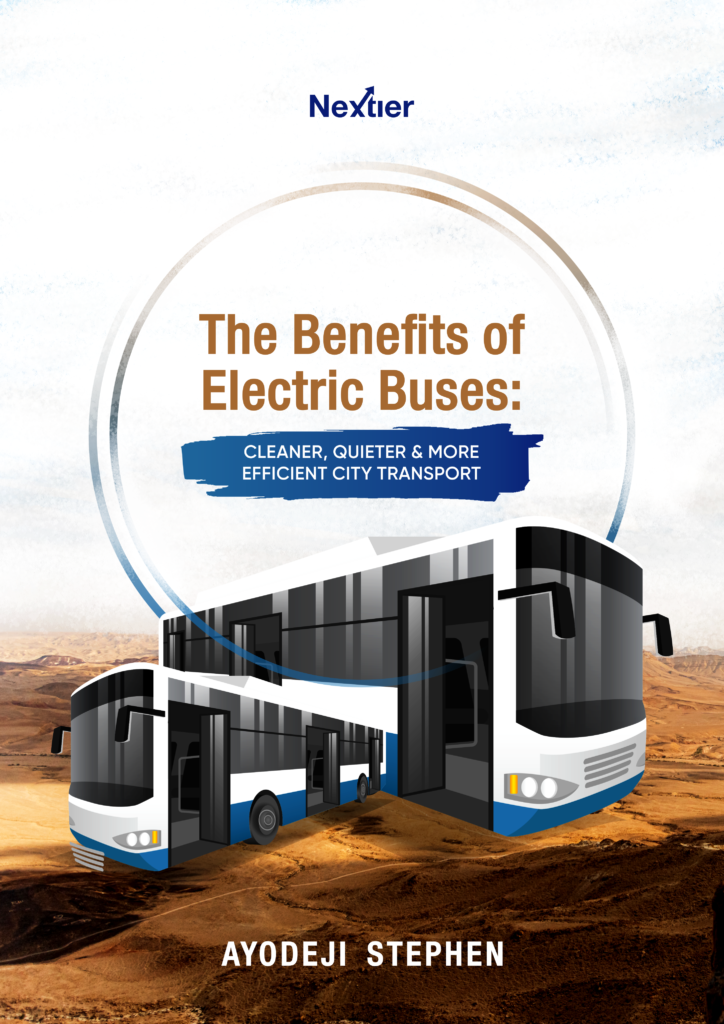
As our cities continue to grow and pollution levels rise, the need for eco-friendly transportation options becomes increasingly important.
Electric buses bring with them a plethora of benefits that make them an attractive option for city transport. Firstly, they are emission-free, running on electricity instead of fossil fuels. This significantly reduces air pollution, improving our air quality and minimising the negative impact on our environment.
Electric buses also have lower operating costs than diesel buses, as electricity is typically cheaper than diesel fuel. Moreover, they require less maintenance due to fewer moving parts and simplified drivetrains, reducing maintenance costs for city transportation authorities.
Electric buses are at the forefront when it comes to reducing the environmental impact of city transportation. Using electricity as their power source, they eliminate tailpipe emissions, contributing to cleaner air and reducing greenhouse gas emissions. This is particularly crucial in densely populated urban areas where air pollution is a significant concern.
A 2021 study by the Department of Automation, Tsinghua University, shows that adopting electric buses can substantially decrease carbon dioxide emissions, helping combat climate change and creating a more sustainable future[1].
One of the advantages of electric buses is their ability to reduce noise pollution in urban areas. The absence of a loud diesel engine greatly diminishes the noise levels traditional buses produce. This is especially important in densely populated areas where noise pollution can harm residents’ well-being.
The UN environment program identified that continuous exposure to high noise levels can lead to stress, sleep disturbances, and cardiovascular problems[2]. By replacing diesel buses with electric buses, cities can significantly improve the quality of life for their residents.
Electric buses offer superior energy efficiency compared to their diesel counterparts. Traditional diesel buses waste significant energy through heat dissipation, whereas electric buses utilise energy more efficiently. One of the key factors contributing to their energy efficiency is regenerative braking.
When the brakes are applied, they convert the kinetic energy into electricity, which is stored in the batteries and used to power the bus. This process not only reduces wear on the mechanical brakes but also extends the range of the bus.
Electric buses also have advanced energy management systems that optimise energy consumption. These systems monitor speed, acceleration, and battery charge levels to ensure efficient energy usage. By intelligently managing power consumption, they can maximise their range and minimise energy wastage. This benefits the environment by reducing overall energy consumption and helps lower operational costs for city transportation authorities.
Furthermore, using renewable energy sources can enhance electric buses’ energy efficiency. Charging the buses with electricity from renewable sources such as solar or wind power further reduces their carbon footprint. This combination with renewable energy creates a sustainable and energy-efficient city transportation solution.
Electric buses offer numerous advantages, but they also face challenges. One major issue is their limited range and the need for charging infrastructure. Unlike diesel buses, electric buses need frequent charging throughout the day. To tackle this, we require more fast-charging stations to keep them running smoothly.
Another challenge is their upfront cost, which is higher than diesel buses. However, electric buses often prove more cost-effective when considering long-term expenses like fuel and maintenance. Yet, the initial investment can be daunting for cities.
Despite these challenges, many cities like Shenzhen, China, and London, UK, have successfully integrated electric buses into their public transportation systems. Shenzhen boasts the world’s largest electric bus fleet, reducing pollution significantly. London aims to have a zero-emission bus fleet by 2037, showcasing their potential in combating environmental issues[3][4].
In conclusion, electric buses offer a sustainable, eco-friendly, and efficient solution for city transportation. With their emission-free operation, noise reduction benefits, and energy efficiency, they have the potential to transform our cities into cleaner and quieter spaces. While there are challenges to overcome, the successful implementation of electric buses in cities like Shenzhen and London demonstrates their viability and effectiveness. As technology evolves, we can expect it to become an integral part of future city transportation systems, paving the way for a greener and more sustainable future.
References
- Department of Automation, Tsinghua University. A 2021 study on adopting electric buses and its impact on carbon dioxide emissions. Tsinghua University, 2021.
- Behr, Hannah. “TUMI E-Bus Mission | Key Message 2» TUMI.” TUMI, 5 June 2023, transformative-mobility.org/tumi-e-bus-mission-key-message-2/
- Cheng, Hefa, and Yuanan Hu. “Municipal Solid Waste (MSW) as a Renewable Source of Energy: Current and Future Practices in China.” Bioresource Technology, vol. 101, no. 11, June 2010, pp. 3816–3824, https://doi.org/10.1016/j.biortech.2010.01.040
- A zero-emission bus fleet by 2037, Transport for London, 2021
Nice article